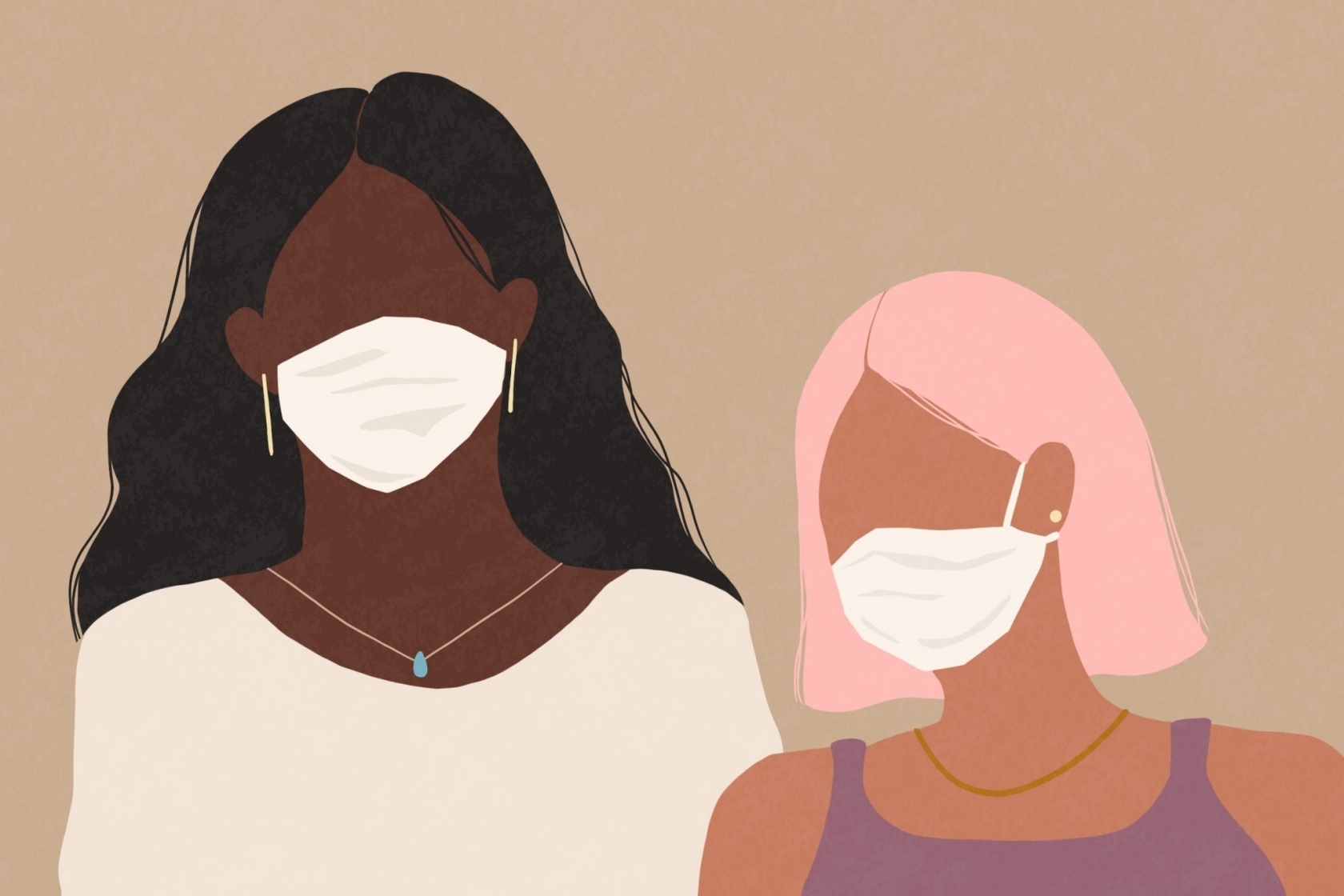Helpful ways to tell your friends that you’re anxious about socialising right now

With coronavirus cases on the rise across the country, many of us are once again feeling anxious about socialising and heading out to public places. But how do you talk to your friends about this potentially uncomfortable subject? We asked an expert to explain.
As coronavirus cases dropped and lockdown restrictions eased over the summer months, many of us felt confident about heading outside to see our friends and family.
With the government encouraging us to get out and spend our money via initiatives like the Eat Out To Help Out scheme, visiting restaurants and pubs while also spending time with people we hadn’t seen in months felt like a win-win situation. Indeed, after so long spent inside in March and April, the opportunity to get back to some semblance of normality felt extra special.
Flash forward a couple of months later, however, and things aren’t looking quite as rosy. Coronavirus cases are on the rise across the UK, and data has shown that a third of these cases are linked to socialising in pubs, bars and restaurants. For many people, the relief they felt at lockdown easing has yet again been replaced by anxiety – and it’s making managing friendships particularly tricky.
You see, for some people, the prospect of heading out and socialising right now is an anxiety-inducing one. And because there are so many different opinions and beliefs about how we should handle the virus at this point in the pandemic, it can be difficult to express these concerns to people who still feel comfortable going out. So how can we handle these difficult conversations if we’re feeling nervous about socialising at this point in the pandemic?
“Throughout our lives we will reach points of difference with our friends and family and learning to negotiate our boundaries is a great skill to learn,” explains Michelle Scott, a psychotherapist at The Recovery Centre.
“My advice would be to take time to establish what feels right for you, ensuring that you are making your personal decisions from wise caution rather than from panic and fear.”
After you’ve taken some time to establish what you are and aren’t comfortable with, it’s time to start communicating these feelings to your friends.
“Encourage open communication with your friends about this and about their healthy boundaries so that you can each feel your voices are heard and that your unique emotional needs are valid, even if they are not the same,” Scott says. “Boundaries are not about conflict or disagreeing – they are about respecting and appreciating difference. If you establish this type of communication then it will be a less awkward conversation if you want to say no to something.”
Of course, one of the biggest worries people have about having these kinds of difficult conversations with their friends is the fear that they might offend them. It’s understandable to feel this way – after all, no one wants to upset the people closest to them – but, as Scott stresses, it’s still important to take some time to consider why you’re worried they might be offended.
“Check in with yourself,” she says. “Are you getting caught up in some old dynamics from your past where you have felt responsible for the happiness of others or have had difficult reactions from someone you cared about?
“Bring yourself into the present and know that you are doing your best. Many of us have been regressing during this difficult time and might be feeling insecure, so it is wise that we are considerate about how we speak to each other. At the same time, it may not be possible to avoid uncomfortable feelings, and that’s OK.”
She continues: “Be clear, calm and don’t over-explain. Remind yourself this is a thoughtful decision you have made in a tough and confusing time.”
It’s important to remember that, however you decide to handle yourself during this challenging time, your thoughts and feelings are valid. While some people might be worried about feeling lonely and want to get out as much as possible, you might prefer to lean on the cautious side for the time being. As long as you’re following the rules and keeping others safe, it’s 100% OK to only do what’s comfortable for you.
If you, or someone you know, is struggling with their mental health, you can find support and resources on mental health charity Mind’s website or see the NHS’ list of mental health helplines and organisations here.
For confidential support, you can also call the Samaritans in the UK on 116 123 or email [email protected].
Images: Getty
Source: Read Full Article
